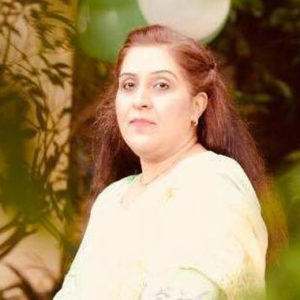Irum Khan
- Home
- Irum Khan
IRUM COLLECTION,
CREATIVEHEAD:IRUM KHAN
Phulkari embroidery technique from the Punjab region (divided between Indian and Pakistan) literally means flower work, which was at one time used as the word for embroidery, but is time the word “Phulkari” became restricted to embroidered shawls and head scrafs.The wordphulkari literally means flowering. It is a form of craft in which embroidery is done in a simple and sparse design over shawls and dupptas. The main characteristics of Phulkari embroidery are use of darn stitch on the wrong side of coarse cotton cloth with colored silken thread.
Its history and origin varies from person to person due to lack of evidences and documentation. The origin of this beautiful art can be traced back to the 15th century AD. Some people said that Phulkari was made in the famous love story of Heer-Ranjha written by Waris shah (1725-1790) ,Heer has many costume include Phulkari articles too form this it is quite obvious that, Phulkari an article customarily presented to the girl during her wedding. Some have opinon that this craft migrated from Persian art, where an embroidery from Gulkari having similar literal meaning, gul mean flower and kari mean work, which did resemble Phulkari, there is another theory which did resemblePhulkari.Phulkari embroidery techniques from the Punjab region (divided between India and Pakistan) literally means flowers work, which was at one time used as the word for embroidery, but in time the word “Phulkari” became restricted to embroidered shawls and head scarfs.It has been 10 years since Mrs. Fareeha has been designing exclusively Phulkari work it started off as a custom Phulakri, but now has spread out its clientele. Each piece is different from other. Speaking about her experience of participating abroad as a designer Fareeha says. “My work has always been highly appreciated as I took the best of my collection.
The word phulkari literally means flowering. It is a form of craft in which embroidery is done in a simple and sparse design over shawls and dupattas. The main characteristics of Phulkari embroidery are use of darn stitch on the wrong side of coarse cotton cloth with colored silken thread.Its history and origin varies from person to person due to lack of evidences and documentation. The origin of this beautiful art can be traced back to the 15th century AD. Some people said that phulkari was made in the famous love story of Heer-Ranjha written by Waris Shah (1725-1790), Heer has many costume included phulkari articles too from this it is quite obvious that, phulkari on article customarily presented to the girl during her weeding. Some have opinion that this craft migrated from Persian art, where an embroidery from Phulkari having similar literal meaning gul means flower and kari means work, which did resemble phulkari, there is another theory which did resemble phulkari.
CREATIVE DIRECTOR
Phulkari (Punjabi: ) embroidery technique from the Punjab region (divided between India and Pakistan) literally means flower work, which was at one time used as the word for embroidery, but in time the word “Phulkari” became restricted to embroidered shawls and head scarfs. Simple and sparsely embroidered odini (head scarfs), dupatta and shawls, made for everyday use, are called Phulkaris, whereas garments that cover the entire body, made for special and ceremonial occasions like weddings and birth of a son, fully covered fabric is called Baghs (“garden”) and scattered work on the fabric is called “adhabagh” (half garden). This whole work is done with white or yellow silk floss on cotton khaddarh and starts from the center on the fabric called “chashm-e-bulbul” and spreads to the whole.
Contact info:
IRUM KHAN:
Brand’s Name: Irum Creation
Category of Business:Dress designer
Creative Head: Irum khan
President:Attock Women Chamber of Commerce &Industry (AWCCI-2018-2019)
Member: Executive Member (AWCCI-2016-2018)
Member: National Business Women Council (NBWC-2017)
Mob: +92 3435431100
Office: +92 3035941077
Office: +92 572613786
Address: Office No.786, Fateh Jang Road, Attock City.
E-mail: [email protected]
E-mail:[email protected]
E-mail: [email protected]
URL:www.wcci.pk
Twitter: @AWCCIpk
Instagram: @AWCCIpk
Facebook:https://www.facebook.com/AWCCIpk/

